Organized with Pexe – Les éco-entreprises de France, the Pollutec Innovation Awards aim to distinguish, among the innovations presented by the exhibitors, those that offer the greatest market potential. For this online edition, ten solutions were selected by the pre-selection jury. Exhibitors with these innovations will have the opportunity to pitch their solution on Pollutec Online on Tuesday, December 1st at 4:15 pm in front of a jury of large companies. The three winners will be the ones with the highest scores at the end of this pitching session. They will be officially distinguished on Wednesday, December 2nd at 12:00 pm on Pollutec Online. Here is the list of nominees in alphabetical order.
Acqua.eco / Biomicrobics: Wastewater treatment and recycling system for ships without any chemicals
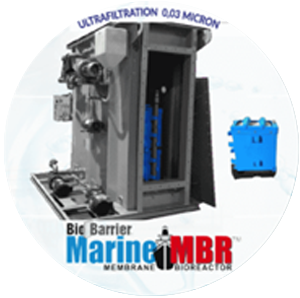
Acqua.eco is an expert in the treatment and reuse of water for land and marine environments and French speaking countries representative of BioMicrobics, a global leader that provides advanced wastewater, water, greywater, and stormwater filtration treatment systems serving diverse markets with a unique approach in the decentralized wastewater industry.
The BioBarrier MarineMBR revolutionizes the treatment of wastewater on board. Indeed it has been developed to meet both increasingly stringent water discharge quality standards (USCG and IMO) and to enable water reuse for new innovative applications. Therefore a simplified and miniaturized treatment chain was developed, including submerged membrane ultrafiltration in order to achieve exceptional performance (BioBarrier technology is the first in the world to be NSF / ANSI 350 certified for the reuse of water).
The BioBarrier MarineMBR allows the total recycling of black and grey water without using any chemicals. It operates automatically thanks to its integrated controllers, thus guaranteeing a constant quality of the treated water as well as increased reliability and robustness. Energy consumption is reduced and required maintenance is low thanks to its intelligent controller and automatic operation.
The system combines the advantages of an activated sludge treatment with ultrafiltration (0.03 μm), eliminating the need for clarification tanks. The result is a system with a small footprint, modular and adaptable, which can handle any volume and is installable in any tank (on land, on board or as a mobile unit). The system goes beyond the most stringent regulations and removes up to 99.9% of the present contaminants. The result is a completely clear, odorless, sterile water, free of viruses, bacteria and chemical contaminants, and perfectly reusable. The system thus offers the possibility of no longer discharging millions of liters of treated and untreated water into our waterways or at sea, and allows, as desired, to give a second life to one’s wastewater by reusing it or to preserve the environment while improving the quality of the receiving environment thanks to a totally clean discharge.
Whether on board, on land or in a mobile unit, the BioBarrier MarineMBR enables sustainable water management adapted to future ecological GreenShip, SmartPort and SmartCity.
Aquatech Innovation: Platforms for the treatment of wastewater in aquatic or protected environments
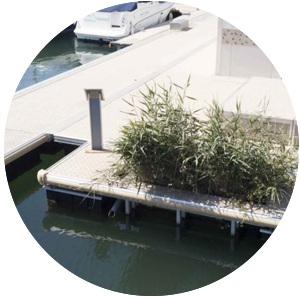
AquaTech Innovation is a GreenTech startup committed to implementing solutions that reduce the environmental footprint of tourism and economic activities in protected environments afloat or ashore. With their innovative patented solution capable to treat wastewater without chemical input, they are actors in the development of a sustainable nautical and tourist economy.
AquaTech Innovation offers a range of products for the wastewater treatment cycle (collection, purification, recycling). AquaClear integrated and modular platforms are available in two versions depending on the volumes to be treated: AquaClear Unit and AquaClear Factory, both applicable on land or in the water.
The innovation allows to adapt a biological treatment solution to any type of environment. This biological solution is composed of mixed aerobic and anaerobic treatment to optimize treatment capacity, a technological assembly that allows a biological treatment to be adapted by floating, an electronic box connected with predictive models, and remote management (sms alert on mobile).
The AquaClear platforms enable to treat effluents as close as possible to the place of production with a discharge in the natural environment qualified “Bathing Water”. The carbon balance of the AquaClear platforms is the most efficient to date.
Main strengths of the product: Respects the principles of circular economy with a 100% biological treatment – Adapts to variations in volumes to be processed due to seasonal fluctuations in activity,
Complies with regulations – Consumes little energy – Requires minimal maintenance – Addresses the issue of water use related to climate change – Perfectly integrates into its environment – Products that can be dismantled and moved.
The main fields of application are, on land or afloat:
– Port areas: in France, with 20,000 km of coastline, more than 1,000 ports and 8,500 km of waterways, AquaClear floating meets the requirements of tomorrow’s port in a logic of economic and environmental performance.
– Tourist activities (campsites…): climate change has tightened regulations on water and in particular its use and quality. AquaClear helps to maintain a sustainable development of tourism and economic activities.
– Private individuals (floating homes, barges…): when protected areas are not connected to the city network, AquaClear allows autonomous water treatment solutions.
Azola: Temporary biomethane storage technology for producers subjected to periodic injection constraints
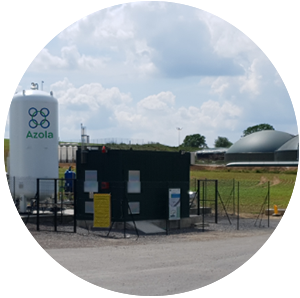
The Azola technological solution was first developed at the Engie Lab CRIGEN under the name LiLiBox (Little Liquefaction Box). The research resulted in patenting an innovative process of biomethane micro-liquefaction which was particularly low Capex cost (no rotating machinery). The solution was incubated by Storengy, which carried out further developing and scale up. An Azola BIO 1:1 demonstrator has been successfully tested on an AD plant in Epaux-Bézu from 2017 to 2019. Azola SAS was created in early 2020 to launch the marketing of the solution.
Low demand or congestion episodes affect one in five projects in France. They may occur during the weekends or public holidays, during summer, or during maintenance operations. In such periods, the biomethane is flared.
The Azola process provides an integrated polishing, liquefaction, storage, reinjection, and plant control solution, which envisions to maximize profit from biomethane injection plants, and lower GHG emissions. The biomethane is temporarily stored under liquid form, then reinjected when the offer/demand balance is reestablished. The technology is based on a liquid nitrogen open cycle combined with a proprietary CO2/H2O purification process.
Under the observation that an average AD plant operates around 8,200 h/y, there is a 565 h/y per project of down time, divided between periods of low demand and/or maintenance/plant unavailability. For a common small-scale agricultural AD unit (around 250 Nm3/h injection capacity) this represents a loss of about 150,000 Nm3/y of biomethane, which is around €140,000/y of income loss, or 10 to 20 % of the average plant turnover. Moreover, Azola BIO could lower GHG emissions of biomethane injection plants and avoid the release into the atmosphere of about 110 tonnes of CO2-eq per year.
Azola’s market applications fit into two main categories: low demand/inactivity periods management for biomethane producers (Azola BIO), and network congestion management at grid edge (for Gas Distribution Network Operators, through Azola GRID). Targeted customers for Azola BIO are AD plants that are connected to the grid through injection sites; future remote AD projects that can’t be connected to the grid; and agricultural Co-generation or CHP plants that are close to their respective FIT expiry dates.
Diamidex / C4Hydro: First smart micro-colony counter
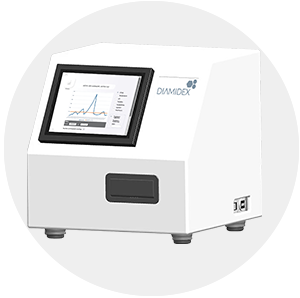
A French company specialized in the development of advanced technologies for the detection, labeling and management of pathogenic microorganisms present in water, C4Hydro is now grouped with Click4Tag and C4Biocontrol within Diamidex (DIAgnostic MIcrobiologique EXpress). It offers the first smart micro-colony counter on the market. This new device gives a reliable result after only 24 hours of incubation.
Thanks to an optical resolution unequalled among colony counters, MICA is able to detect and count microorganisms at their micro-colony stage. Designed as a turnkey solution, it is easy to use and implement by all operators. Those are guided step by step through a simplified protocol depending on the targeted microorganism. Automatic micro-colony counting guarantees less uninterpretable results than the traditional, faster culture method.
MICA exists for Legionella counting. But with Diamidex technology and MICA equipment, it is now possible to detect and count Alicyclobacillus bacteria in beverages within three minutes, after only 24 hours of incubation on Petri dishes (48 hours depending on the characteristics of the matrix). Furthermore MICA will also be available for acetic bacteria, aerobic mesophilic flora, lactic acid bacteria and yeasts/molds.
Technical features: Competitive price – Fast & reliable results in 48h allowing greater reactivity for legionella & 24h for alicyclobacillus – Easy to compare with regulatory CFU lab results – Easy to use even for non-scientist / sold with a 8 hours training program – Suited for routine/emergency analyses – Up to 6 analyses at a time – 21 CFR Part 11 compliant – Integrated traceability system during the protocol – Rights management per user, individual login – Integration with risk management system, LIMS or CRM.
Ebhys: Digital sorting control in waste cabins
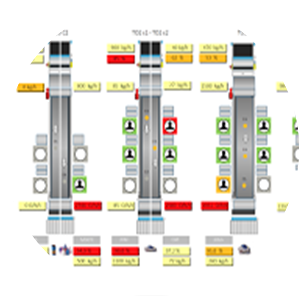
Ebhys has been specializing in sorting and valorization units since 2005, being particularly committed in the ergonomics of working stations. It launches this year a technology package dedicated to the continuous control of quality and activity in waste sorting cabins.
This package consists of several digital tools, some of which constitute real technological breakthroughs:
– continuous monitoring of data from optical sorters at the entrance of sorting tables
– continuous control of sorters activity through a system of motion sensors associated with an AI-based algorithm
– continuous monitoring of working conditions at the sorting stations (temperature, light)
– continuous control of the quality of outflows.
All of these technological bricks can be used separately or together to feed a database of cabin activity. A supervisor allows for continuous return of the processed information so that the operator can make diagnoses and take real-time decisions about the organization or settings of the sorting line.
Envea: First solar station for the air quality monitoring
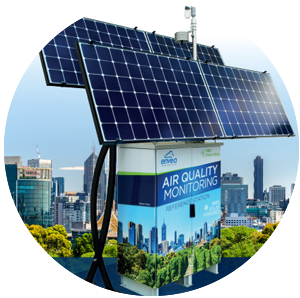
Thanks to its low energy consumption reference analyzers Envea was able to create the world’s first air quality monitoring station powered by solar panels. This standalone station Solar AQMS encloses Envea’s e-Series analyzers, QAL 1 certified and US-EPA approved, offering the best metrological performances for the continuous monitoring of gases CO, O3, NOx, SO2 and fine particulates PM10 or PM2.5.
This sturdy series of criteria monitors offer very low energy consumption, they are insensitive to temperature variations and are 24V power supplied. The air quality monitoring station is thus able to withstand temperatures up to 45-50°C without air conditioning or connection to the power grid. Moreover the station being equipped with data acquisition & handling systems, the measured parameters are automatically and wireless transmitted to a central server for global supervision and management.
All these features make the Solar AQMS a complete standalone monitoring station, only supplied by green energy and measuring 24 hours a day that can be installed in isolated sites. It is hence particularly suitable for developing countries as well as for smart cities seeking to diversify their energy mix.
Haffner Energy: First industrial unit dedicated to hydrogen production from biomass
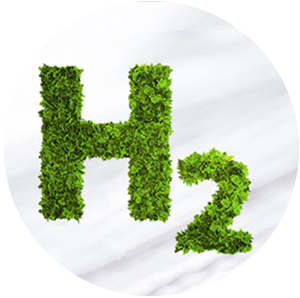
Haffner Energy, which specializes in the handling of biomass for clean energy purposes, had presented on Pollutec 2018 a breakthrough technology that can produce hydrogen in a 100% renewable way. This solution called Hynoca (HYdrogen NO CArbon) is based on biomass thermolysis and gasification and can generate a renewable hydrogen while capturing carbon. It is protected by 14 patents.
The sources of Hynoca stations are pieces of biomass. Hydrogen, a clean energy vector which emits only water steam, is thus produced from a source that is itself clean, and no longer from fossil fuels. Hynoca stations do not need to use electricity networks and also are a good alternative to electrolysis, which depends a lot more on these networks’ development.
The Hynoca process produces valuable byproducts that allow, from the projects’ beginning, to generate value. These products, both created by the biomass’ thermolysis, are a syngas called Hypergas, from which hydrogen is extracted later in the process, but which alone can be used in heating networks, as well as biochar, a char filled with carbon with water retention capacities of soils, which allow the carbon’s return in earth through the bio-agriculture chain. Coupled with on-site production thanks to modular stations, the use of biochar and the self-subsistence in thermolysis’ heat thanks to a fraction of the Hypergas produced, allow the Hynoca process to have a neutral, and even negative carbon footprint.
Hynoca’s applications are wide: the solution can fit with the needs of industrial processes, and those of mobility. The first industrial unit, which is being built in Strasbourg (France) for the local gas supplier R-GDS, will supply a fleet of about fifty hydrogen buses starting in 2021.
Microbia Environnement: Early detection of toxicogenic cyanobacteria blooms in fresh water
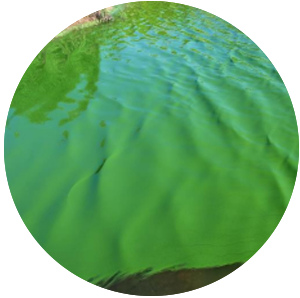
As a consequence of global warming effect on duration and frequency of heatwave events, as well as ecosystem imbalances induced by human activities, the occurrence of cyanobacteria proliferations affecting surface water of river and lake ponds, has been again a recurrent topic in media during the Summer 2020. Signaling of poisoned dogs in surroundings of contaminated sites, seasonal restrictions for bathing or fishing in recreational and touristic areas, shutdowns of water catchment wells: the impacts on economy and public health risk are diverse and are obviously taking increasing importance.
Microbia Environnement has been engaged since 2013 with French local authorities and the aquaculture sector, and has validated and implemented its technology of high-sensitive genetic biosensors in the field, providing rapid and cost-effective diagnosis of microbial proliferation and associated toxicity in real-time. End users thus benefit from a unique early-warning system and a personalized service which is comparable to a “weather forecast” for the water quality at their site.
First used in marine systems at aquaculture sites contaminated by micro-algae, the biosensors platform is now fully operating in freshwater to anticipate cyanobacteria blooms. Combining a patented technology and a strong expertise in algal/microbial proliferations, Microbia Environnement is able to adapt the sampling and analysis strategy depending on each site characteristics, to end up with an optimal warning and forecasting tool. Once the “risky” period has been determined for the site of interest, water sampling is basically achieved twice a week, at pre-defined spots representative of potential exposure. The results are available in three hours only after sampling, and then communicated on the same day, which is a huge improvement compared to usual methodologies (e.g. 3-10 days with microscopy counting and identification).
Microbia Environnement is committed to provide reliable information about the microbial toxicity of a waterbody, and that in real time, to anticipate and react accordingly. The objective is to “translate” the scientific data into formal support to all concerned players that is usable for decision making and communication towards the public. Professionals from the aquaculture sector, managers of recreational or touristic areas, water supply companies and official authorities, are all concerned and can rely on Microbia Environnement to answer the public demand for always more transparency.
Recyclamer Innovation: Autonomous robot aimed at collecting floating waste
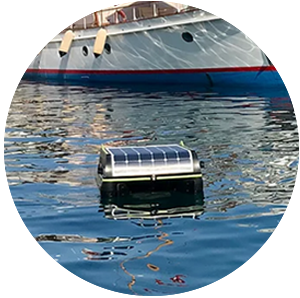
After a first prototype presented at La Rochelle in 2018, Recyclamer recently unveiled Geneseas S, a robot capable of collecting solid waste and hydrocarbons floating on the water surface, particularly in ports, marinas and other aquatic areas before they leave for sea. This connected robot is 100% autonomous.
Geneseas S collects solid waste thanks to a 140-liter basket and captures hydrocarbons thanks to a natural and recyclable filter. It is capable of monitoring some water quality parameters (pH, temperature, conductivity, dissolved O2, etc.), making it possible to identify potential sources of contamination and thus to be able to quickly intervene to prevent diffuse pollution. Geneseas S can also measure the depth level of a site, which helps facilitating the organization of operations related to the maintenance of navigation depths.
Equipped with a GPS, the robot can be piloted using a remote control or programmed via a web platform so as to clean a predefined area and automatically return to its base where the collection basket will be emptied.
Particular attention has been paid to the design: each material, each technological part comes via a short circuit in order to have the smallest carbon footprint up to the marketing stage. The technical and scientific partners are located on the territory of the French region New Aquitaine (Limoges, La Rochelle, Aubusson…).
Today, in view of the human, technical and material resources involved, cleaning up aquatic areas represents a significant budget for the managers of these areas. The Geneseas S solution represents a sustainable and profitable short-term investment to facilitate these clean-up missions.
Toopi Organics: Microbiological process for the valorization of human urine into agricultural products
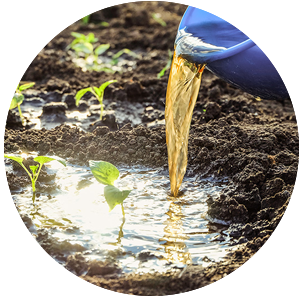
Today, some 35 billion liters of human urine are estimated to be produced in France (200 billion in Europe). And to evacuate this urine, no less than 200 billion liters of drinking water would be used (6,000 billion in Europe).
Faced with this situation, three entrepreneurs have joined forces in 2018 to create a structure specializing in the recovery of human urine for agriculture. Since then, Toopi Organics has patented a microbiological process capable of enriching human urine with microorganisms of agronomic interest. Urine that already contains the NPK fertilizing elements -nitrogen, phosphorus, potassium- is depolluted and turned into bio-stimulants. These bio-stimulants make easier the assimilation of atmospheric nitrogen and allow a better absorption of nutrients. They are 30% to 110% more effective than traditional mineral fertilizers, according to studies conducted by Bordeaux Sciences Agro and the Gironde Chamber of Agriculture (Aquitaine region, in South of France). In addition, these bio-stimulants contribute to reduce the water needs of plants, thus reducing water stress. Urine based bio-stimulants therefore have an effect on several levels of the environmental transition: waste management, protection of water resources and reduction of risks by offering farmers the opportunity of freeing themselves from their mineral fertilizer needs.
The young company, which raised €1 million in April 2020, inaugurated its first production unit in the Gironde region in early September. This plant should process 750,000 liters of urine per year. This fund raising should also enable Toopi Organics to structure its collection network (e.g. dry toilet rentals, medical analysis laboratories), to secure the marketing of its bio-stimulants (MA application in progress) and to accelerate its development both in France and internationally.
Would you like to take part in the Pollutec Innovation Awards?
Register for free now: https://learnandconnect.pollutec.com/pollutec-online/
Reminder :
- Tuesday 1ˢᵗ December 2020 | 16:15 – 17:15 – pitching session of the 10 nominated companies
- Wednesday 2ⁿᵈ December 2020 | 12:00 – 12:30 – presentation of the winners and prize-giving ceremony